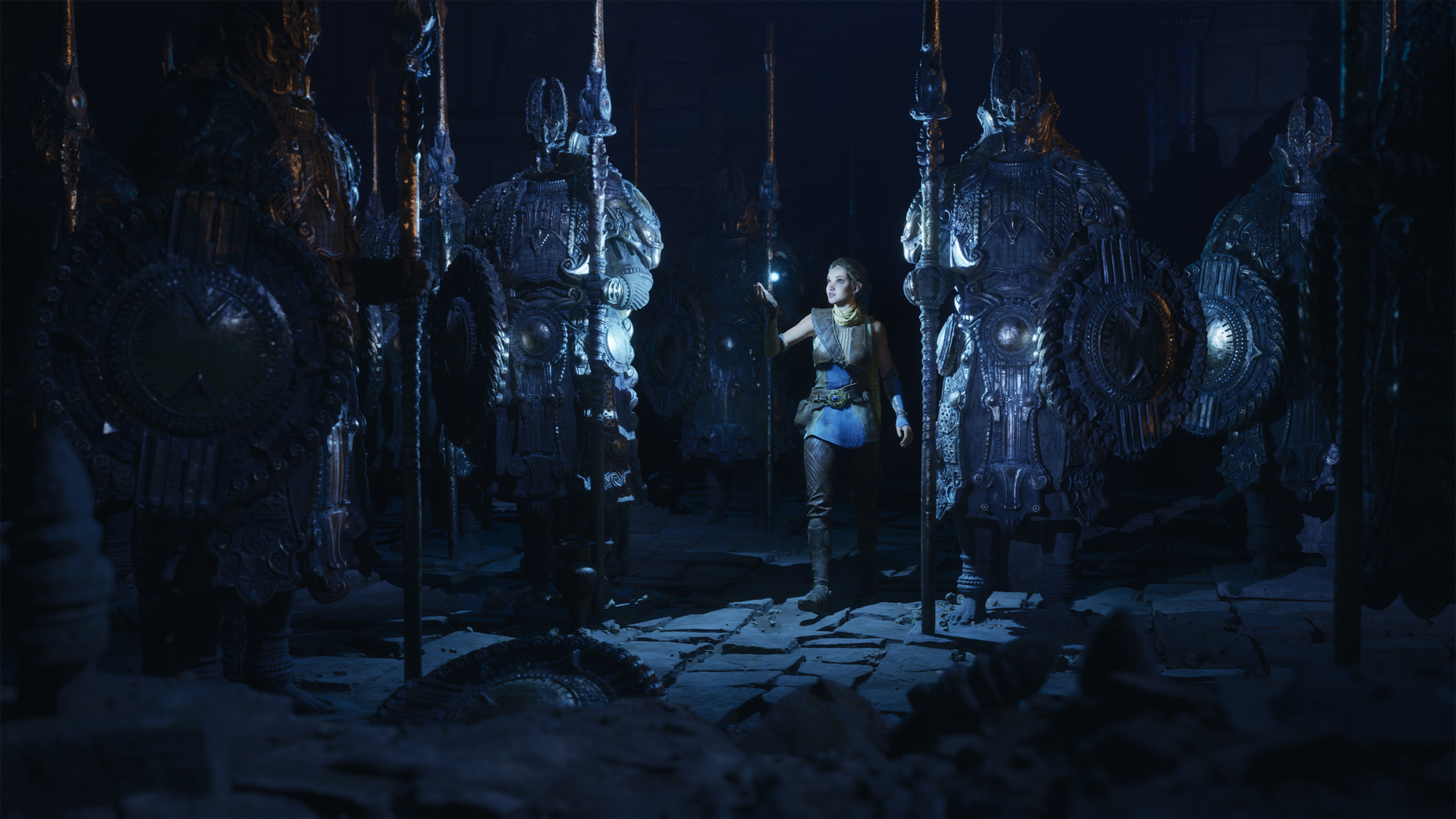Unreal Engine 5 is a next-gen game engine built with photorealistic graphics in mind
Developers will get full access to the engine in 2021

Unreal Engine 5 is official, and while it won't be released in full until next year, it will help pave the way for true photorealistic graphics in PS5 and Xbox Series X games.
Epic Games announced the new engine today, on the heels of adding next-gen console support to the latest build of Unreal Engine 4. Unreal Engine 5 will improve upon previous versions of the engine by integrating two new technologies: Lumen lighting and Nanite geometry.
As Epic explains, Lumen is a lighting system which allows for functionally infinite ways to bounce and scale light, and because it responds to lighting changes immediately, it enables artists to build more accurate and dynamic lighting systems. Lumen comes part and parcel with Nanite geometry, which is described as a way "to create as much geometric detail as the eye can see" without worrying about the polygon limitations that have historically bottlenecked detail in games. Epic maintains that, together, these technologies allow for "film-quality source art" which can "achieve photorealism on par with movie CG and real life."
In other words, next-gen games made in Unreal Engine 5 are going to be very, very pretty, and in subtle but significant ways, much closer to photorealism than current-gen titles. We got a taste of this in the new PS5 Unreal Engine 5 demo, which shows what next-gen consoles can really do with Lumen and Nanite. Short answer: a lot.

All of this lines up with previous comments from Epic CEO and founder Tim Sweeney, who argued that human NPCs are the biggest blockade to photorealism, with the second biggest being how to produce photorealism graphics without investing too much time or money.
"First of all, achieving photorealism," Sweeney said in March. "We're getting pretty darn close, but we need one more giant leap to get to the point where you can't distinguish between Unreal Engine powered real-time graphics from CG graphics [or] from the real world… We're putting a lot of effort into next-generation technology to empower photorealism."
Many developers are already building next-gen games in Unreal Engine 4, among other cross-gen compatible engines, so Unreal Engine 5 was built for forward compatibility to allow developers to continue their projects. The engine will enter a beta-style preview in early 2021 ahead of an official release later in the year. And while it was partly built with the power of next-gen consoles in mind, it will also support PS4, Xbox One, PC, Mac, iOS, and Android games.
Sign up to the GamesRadar+ Newsletter
Weekly digests, tales from the communities you love, and more
Epic has more than a new engine planned for the next generation as well. Ahead of the release of Unreal Engine 5, the company is waiving royalties for the first $1 million in revenue generated by all games (or other products) made using Unreal Engine. The engine itself is free to download, and under these new terms, developers - particularly independent developers - won't have to worry about paying royalties until their game hits $1 million in revenue.
Previously, Unreal Engine users paid a 5% royalty on all revenue after the first $3,000 earned per quarter. The new terms call for a 5% royalty on lifetime revenue over $1 million, so if a game earned $1.1 million, its developer would pay 5% of the extra $100,000, or $5,000 in that case. Additionally, if a game generates less than $10,000 in a quarter, its developer won't have to pay any royalties for that period. This change feels like an extension of Epic's motto that "we succeed only when you succeed," and it will effectively save Unreal Engine developers their first $50,000 in royalties, which is nothing to sneeze at.
Epic is also rolling out free cross-play support to all developers through Epic Online Services.

Austin has been a game journalist for 12 years, having freelanced for the likes of PC Gamer, Eurogamer, IGN, Sports Illustrated, and more while finishing his journalism degree. He's been with GamesRadar+ since 2019. They've yet to realize his position is a cover for his career-spanning Destiny column, and he's kept the ruse going with a lot of news and the occasional feature, all while playing as many roguelikes as possible.


